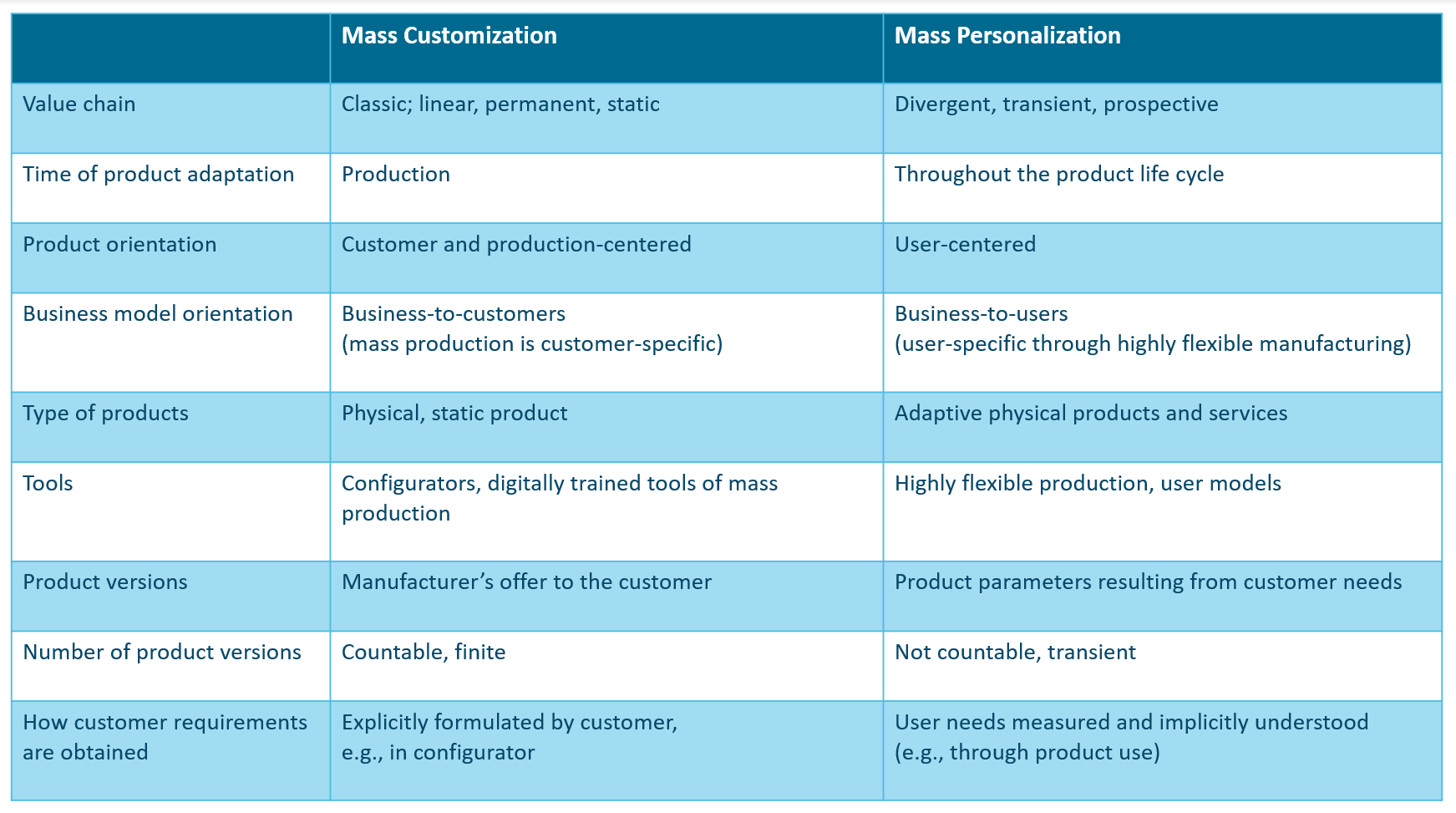

Mass Personalization is about a radical focus on the user in industrial manufacturing. It drives forward both the industrial production of individual products and the personalization of mass products — all at a cost that is within the parameters of conventional mass production.
The goals of Mass Personalization are to develop and open up markets for producers by fulfilling user requirements as effectively as possible.
Unlike mass customization, Mass Personalization is not simply about adapting mass-manufactured products to meet customer requirements at the time of manufacture. Mass Personalization also considers changes in users and their needs. It aims to achieve a user-focused adaptation of product features throughout the product life cycle, from development and production through to the product’s use and repurposing, as well as its reuse as a raw material.
Mass Personalization is closely related to digital transformation (data) and biological transformation (biointelligent processes).
Mass Personalization is driven by the latest technological, social and economic developments:
 Center Mass Personalization
Center Mass Personalization
